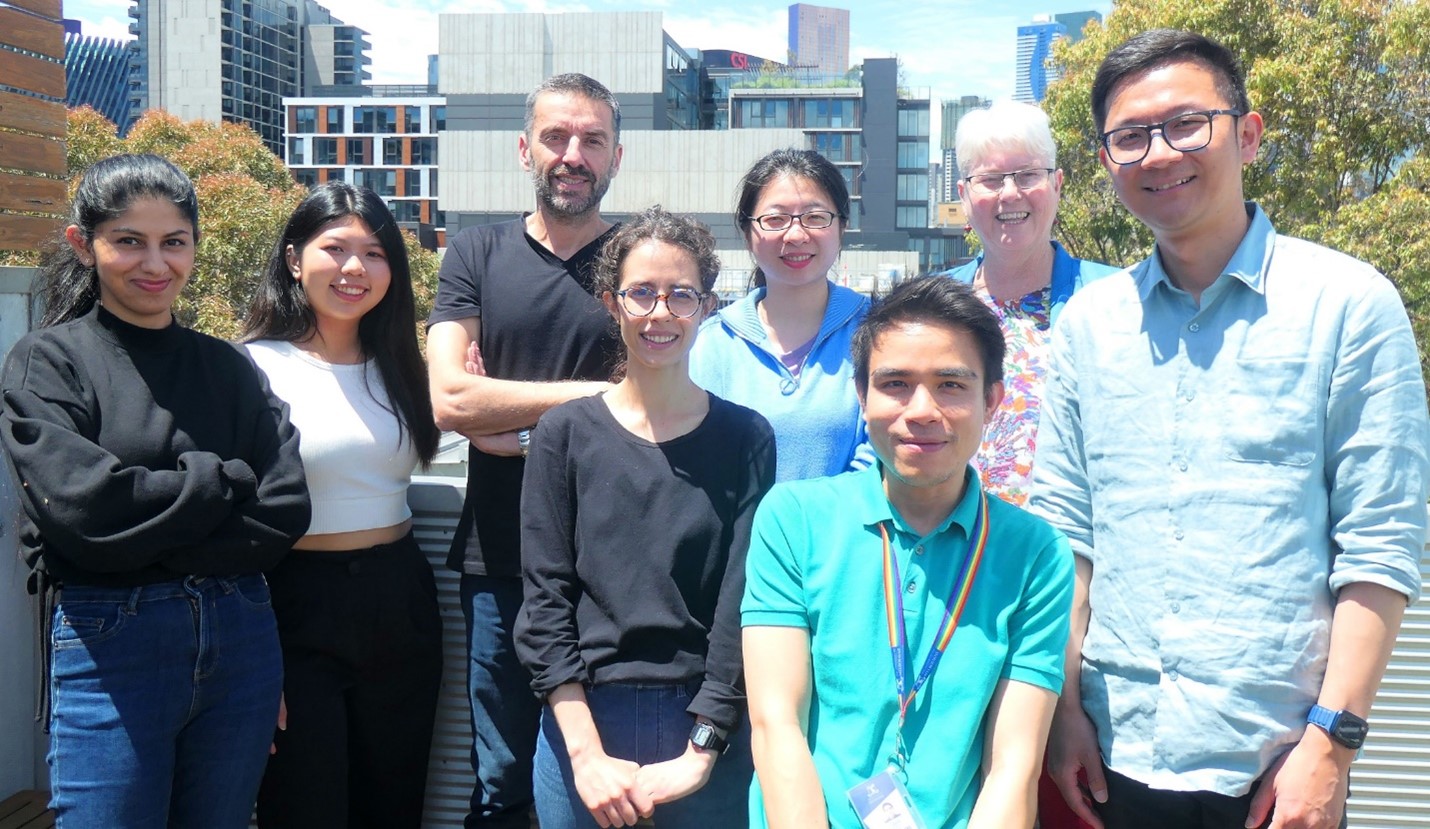Tilley Group

“I believe that answering the major medical and biotechnology questions of the 21st century will require convergence of the life and physical sciences; and that the development of drugs for diseases, such as malaria, that affect patients who can't afford expensive treatments, requires radical new approaches involving Academic/Private/Public partnerships. I would like to be part of the exciting developments in these areas." – Leann Tilley
Research
Every minute, one child in Africa dies from malaria. Around the world, the mosquito-borne parasite kills about 600,000 people each year, most of them children and pregnant women, while another 200 million people suffer illness as a result of malaria infections.
Carried by the anopheles mosquito, the tiny malaria parasite invades the victim's red blood cells where it starts devouring the red cell haemoglobin and changing the cells so that the infected red blood cells stick to blood vessel walls. This leads to the typical symptoms of fever and headaches, but in severe cases results in coma and death.
The Tilley lab is working as part of a global effort to understand and control malaria. We undertake research in the areas of cell biology and drug development related to the malaria parasite, Plasmodium falciparum. We investigate the action of and resistance to antimalarial compounds, with a view to designing new antimalarial drugs. We are interested in how the parasite alters the erythrocyte surface to cause malaria pathology, as well as the remarkable transformation that turns parasites crescent-shaped and allows them to be transmitted from a human host to a mosquito vector.
Techniques
Leann’s laboratory helped to develop and implement new imaging modalities and apply them in pioneering applications. Such modalities include 3D electron tomography, cryoEM, and super-resolution optical microscopy.
Leann’s laboratory is undertaking molecular and biochemical studies that underpin the development of new antimalarial drugs.
Leann is a user of the Bio21 Institute Ian Holmes Imaging Centre and the Mass Spectrometry and Proteomics Facility.
Group Members
Group Head
Professor Leann Tilley
Postdoctoral Fellow
Stanley Xie
Con Dogovski
Research Assistant
Chiawei Tai
Graduate student
Nutpakal Ketprasit
Biography
Professor Leann Tilley
Email: ltilley [at] unimelb.edu.au
Ph: +61 3 8344 2227
Leann Tilley is Redmond Barry Distinguished Professor Emeritus of Biochemistry and Pharmacology. Leann obtained her BSc (Hons) in Biochemistry from The University of Melbourne, and her PhD in Biochemistry from the University of Sydney. After postdoctoral fellowships at Utrecht University in the Netherlands, the College de France in Paris and at The University of Melbourne, she joined the Biochemistry Department at LaTrobe University. In July 2011, she returned to the Department of Biochemistry and Molecular Biology at The University of Melbourne.
Professor Tilley has held an ARC Australian Professorial Fellowship and a Georgina Sweet Australian Laureate Fellowship. Her work has been recognised by the award of the Bancroft-Mackerras Medal from the Australian Society for Parasitology (2010), the Beckman Coulter Discovery Award of the Australian Society for Biochemistry and Molecular Biology (2011), a Redmond Barry Distinguished Professorship (2016), a Eureka Prize for Infectious Diseases Research (2016) an Australian Society for Biophysics Bob Robertson Award (2017), a Fellowship of the Australian Society for Parasitology (2018), a Lorne Proteins Sidney Leach Medal (2022), a Lemberg Medal of the Australian Society for Biochemisty and Molecular Biology (2022) and an EMBL BioMalPar LIfetime Achievement Award (2023).
Leann embraces a large range of technologies from drug and protein chemistry to molecular cell biology and novel imaging technologies. She is assisted by collaborations with experts from other disciplines, ranging from molecular parasitologists to synthetic organic chemists and structural biologists.
Leann served as Deputy Director and Director of the ARC Centre of Excellence for Coherent X-ray Science (CXS) (2006-2014). This Centre brought physicists, chemists and biologists together to develop fundamentally new approaches to probing biological structures and processes. It received international acclaim for its cross-disciplinary and cross-institutional work and its contributions to the development of novel imaging techniques.
Leann is Convenor of Biomolecular Horizons 2024 Congress to be held in Melbourne, October 2024.


.png)
